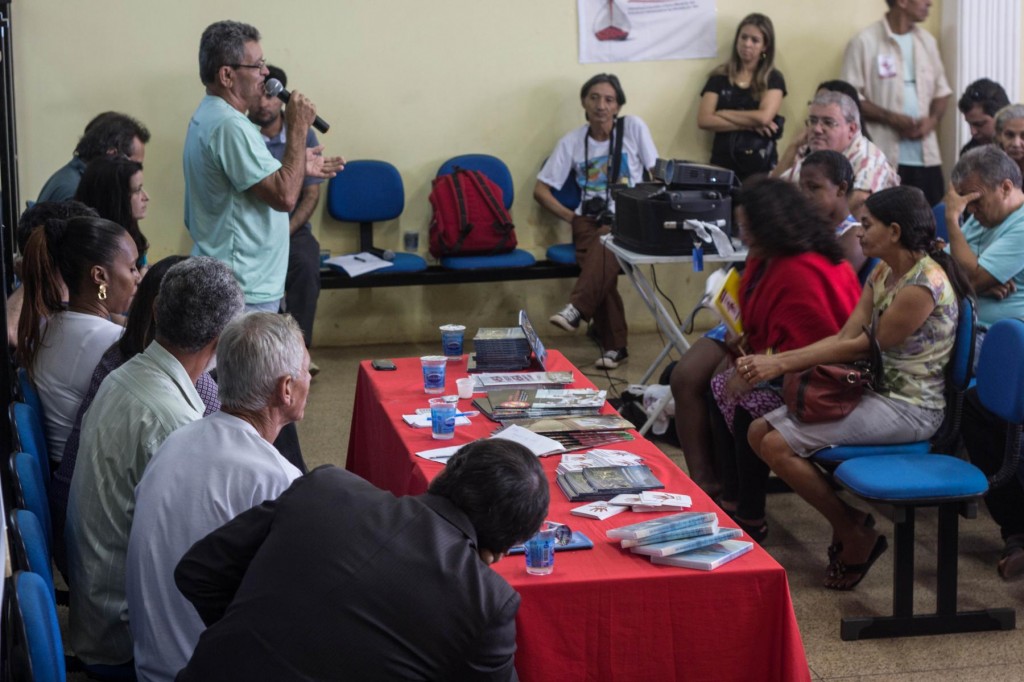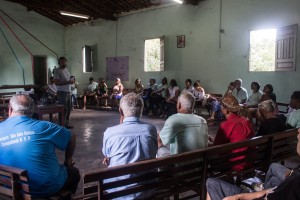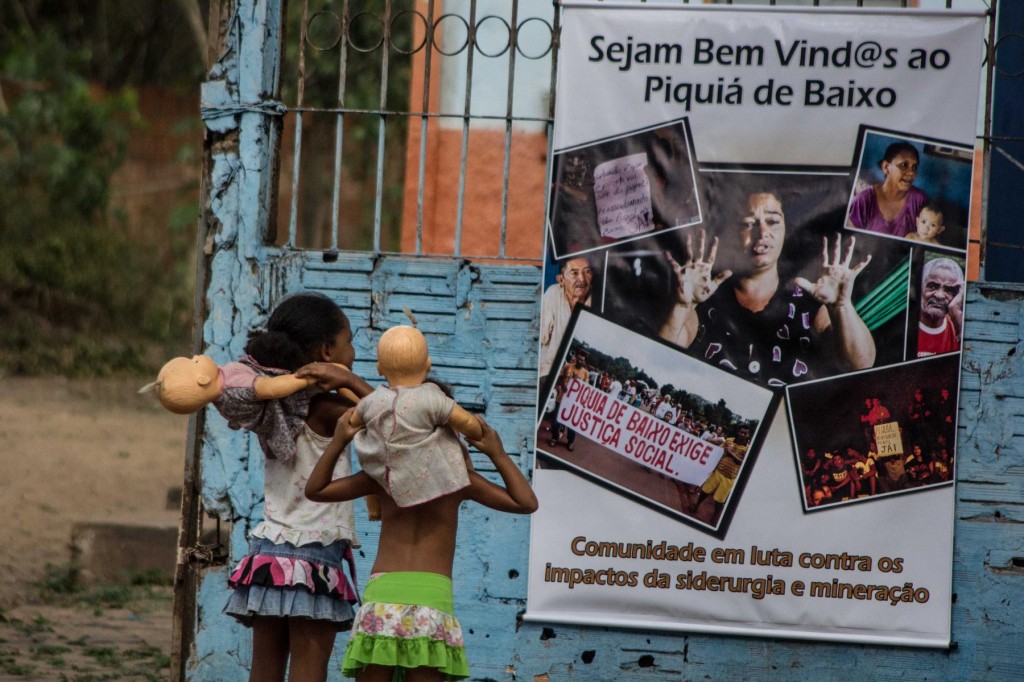In defense of social and environmental justice in the lands injured by Vale.
 “I’m tired of holding this mineral train passing in front of my house ten times a day. I’m tired of hearing that this train of 330 wagons carried the wealth of our land and leaves a trail of abuses and deaths: one person every month! I’m tired of the speeches of the “wearing ties” of the company: they ensure that all this will bring progress, but for us, here, everything is stopped for more than twenty years! ”
“I’m tired of holding this mineral train passing in front of my house ten times a day. I’m tired of hearing that this train of 330 wagons carried the wealth of our land and leaves a trail of abuses and deaths: one person every month! I’m tired of the speeches of the “wearing ties” of the company: they ensure that all this will bring progress, but for us, here, everything is stopped for more than twenty years! ”
This is the relief of several families living in the area of influence of the Carajas corridor (900 km railway between Maranhão and Pará, in northern Brazil).
Here, mining company Vale SA dominates the economy and controls the regional policy, possessing the richest and more abundant iron mines of the world and an impressive logistics system (railways and ships).
Vale is the second largest mining company in the world, operating in 38 countries has grown 19 times since a suspicious privatization transaction gave this treasure to private interests. It paints green and yellow its image, boasting its sustainability and social responsibility with powerful means of propaganda and influence on political parties, on the contrary, towns and communities around the world bear witness of the labor disputes (3,500 people in Canada have confronted the company with a strike just over a year!), pollution, discharges, corruption of local authorities, or even the use of militias to protect their private interests. In 2012, Vale was chosen in voting internationally as “the worst company in the world” (Public Eye Award, Switzerland).
Therefore, we consider this company as a paradigmatic example of the arrogance of many mining companies in the world. Since late 2007, a network of movements in northern Brazil launched the “Justice on the rails” (www.justicanostrilhos.org), to report conflicts with the multinational and claim social and environmental justice. Since then, participation in the World Social Forum in Belém strengthened the network of alliances and daring campaigns, allowing the birth, in April 2010, of the International Joint Affected by Vale.
 Communities, social movements, workers and institutions, which in many ways are considered affected by the company, have been organized since the first meeting of the Joint International exchange of experiences and strategies of resistance and alternatives to the impacts of mining. The organization facilitates the exchange between people from ten different countries around the world.
Communities, social movements, workers and institutions, which in many ways are considered affected by the company, have been organized since the first meeting of the Joint International exchange of experiences and strategies of resistance and alternatives to the impacts of mining. The organization facilitates the exchange between people from ten different countries around the world.
Justice on the Rails also has close relations with the Brazilian Network for Environmental Justice and the Observatory of Mining Conflicts in Latin America. Since 2010 participates annually in the General Assembly of Shareholders of the Vale also leading to major investor the complaints and demands of communities.
Un frente específico de lucha de la red Justicia en los Raíles es el acompañamiento del caso emblemático de la comunidad Piquiá de Baixo (Açailândia-MA), víctima de la contaminación de la cadena de la minería y el acero. Allí, más de 300 familias no aguantan más convivir con cinco empresas siderúrgicas (altos hornos) que han invadido las tierras de la comunidad. Reivindican el reasentamiento en una zona libre de contaminación, para volver a vivir con dignidad y salud.
Piquiá de Baixo es uno de los casos más graves de racismo ambiental y violaciones de derechos humanos en Brasil. En 2013, una campaña internacional lanzó una acción solidaria y de denuncia, para el reasentamiento urgente de la comunidad.
A specific struggle front of the Network Justice on the Rails is to support the emblematic community of Piquiá de Baixo (Açailândia-MA), a victim of contamination from mining and steel. There, more than 300 families have had enough to live with five steel companies that have invaded the lands of the community. They claim for their resettlement in a pollution-free area, to live again with dignity and health.
 Piquiá de Baixo is one of the most serious cases of environmental racism and human rights violations in Brazil. In 2013, an international campaign launched a solidarity complaint for an urgent resettlement for the community.
Piquiá de Baixo is one of the most serious cases of environmental racism and human rights violations in Brazil. In 2013, an international campaign launched a solidarity complaint for an urgent resettlement for the community.



